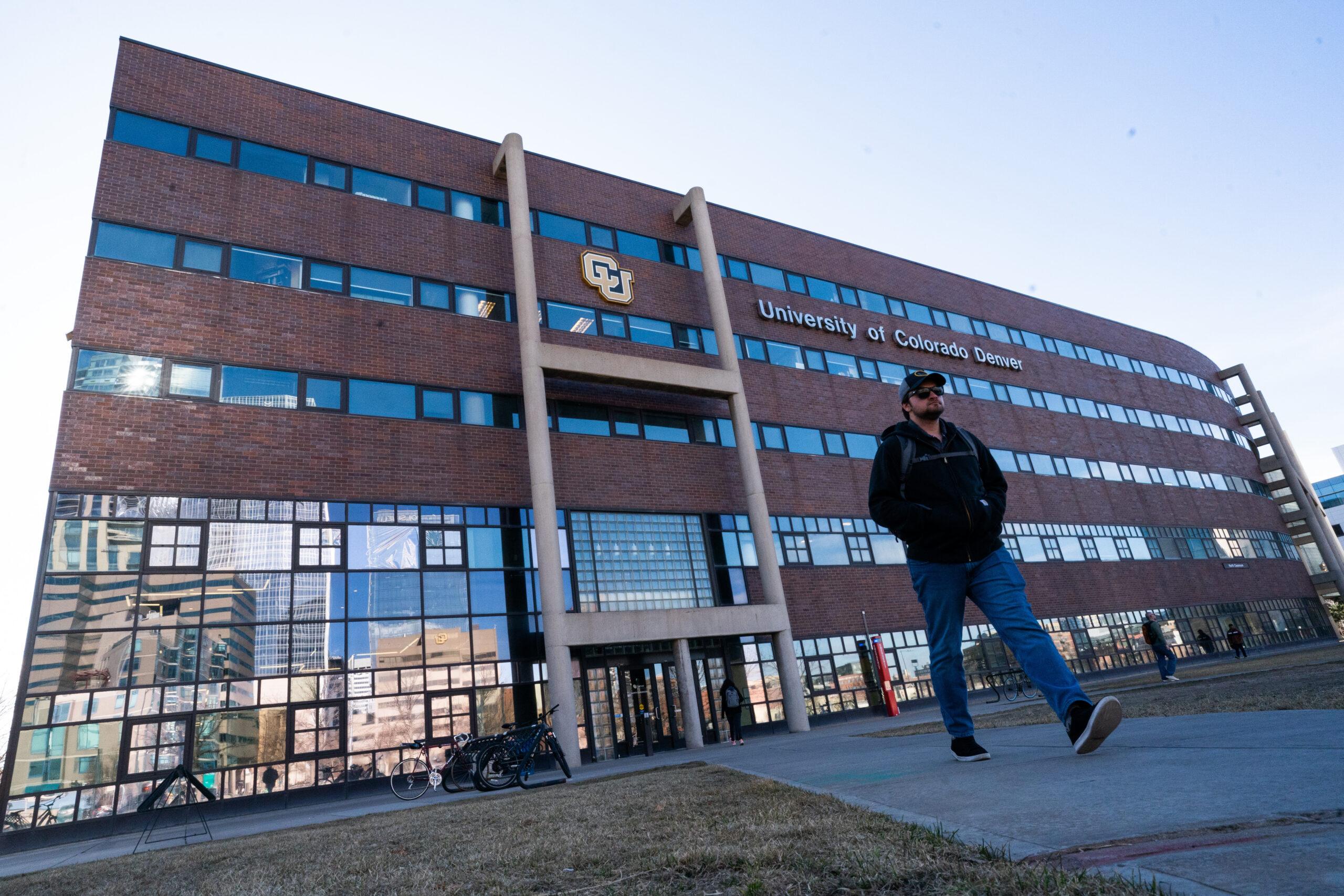
This story was originally published by Chalkbeat. Sign up for their newsletters at ckbe.at/newsletters.
Stephanie Araiza tries to keep the tough days at the University of Colorado Boulder in context.
Her parents struggled to earn money during the pandemic because they weren’t getting as many hours. Unlike many who could do their jobs remotely or whose work was considered essential, they didn’t have a college degree.
That’s helped Araiza, 20, a junior who is studying integrated psychology and wants to be a doctor, keep her goals in mind. It’s also helped her keep her struggles to acclimate to the academic demands and find a community at CU Boulder in perspective — none of them can compare to the difficulties her family endured during the pandemic. She wants to graduate for her family, and also to ensure she can always find work.
“I personally want to pay them back for all the sacrifices they made, especially during the pandemic,” said Araiza.
Araiza is one of a record number of students this year sticking with school from year-to-year at CU Boulder.
In the wake of the pandemic and deep disruptions to education, fewer graduating high school students have gone to college. But recently released retention numbers show that the share of students who are sticking with college is on the rise. The improvement reflects the ways institutions like CU Boulder have put more priority on supporting students, especially students of color. It also reflects the resilience of students like Araiza after enduringing pandemic hardships.
“I do feel like they’ve done better,” Araiza said of the school.
This year, 89% of CU Boulder students stayed enrolled into their second year, according to school numbers. And 81.7% of students entered into their third year. Each are all-time highs for the school.
The focus on retention, or the ability of schools to keep students enrolled on a yearly basis, has become crucial for CU Boulder and nearly every school in the state.
College leaders worry about an upcoming enrollment cliff, or the dropoff in college-aged students that would impact enrollment numbers. Keeping students on campus keeps enrollment up. Some college leaders in Colorado also worry about competition from other universities, especially out of state, impacting their pool of applicants.
But when school leaders like those at CU Boulder focus on retention, the benefits don’t just go to the institutions.
Retention efforts most benefit students, especially students of color and from lower socioeconomic backgrounds. Graduating opens up higher paying job opportunities. And students who only have some college are saddled with debt and federal labor data shows they make far less than graduates. Statewide, Colorado has over 700,000 residents with some college, but no degree.
Despite the positive overall trend at CU Boulder, the numbers show the university still hasn’t bridged the gap between students of color and white students, although the numbers improved for both groups.
About 82% of Black freshmen persisted into their sophomore year, up by 1.2 percentage points from the 2021 freshman class. Hispanic freshmen students stayed on campus into their sophomore year at a rate of 85.9%, up 4.3 percentage points from the previous class.
Meanwhile, about 91% of white students stayed enrolled into their sophomore year.
Retention rates were lower among freshmen during the 2021-22 academic year who are now juniors and spent most of their high school senior year in remote learning. About 69% of Black students and 74% of Hispanic students made it to their junior year. That’s compared to 84% of white students.
Luis Licon, a junior studying political science who is also running for CU System regent in 2024, said the school does a lot of general outreach to help students, although sometimes it’s not targeted enough to individuals who might be struggling. He’s felt the school has done a better job at recognizing the cultural backgrounds of students and making them feel like a part of campus.
“But I do feel like I can manage this, because I’ve experienced much worse,” Licon said, who at one point lived in his car.
CU Boulder leaders began to take a deeper look at undergraduate retention about two years ago, because the school hadn’t historically helped enough students return every year, said Katherine Eggert, senior vice provost for academic planning and assessment.
The committee, called the The Buff Undergraduate Success Leadership Implementation Team, got school leaders talking for the first time to understand how best to support students from year to year, she said.
The committee has made some changes and plans for others. Changes in the spring included a published directory of tutoring resources and inclusive spaces. Priorities for this fall include streamlining academic advising and improving campus tutoring.
The committee also wants to make it more affordable for students from low-income backgrounds, and to refocus some support programs to provide consistent help to some students.
“The goal is just to serve our students better and that includes closing the gaps between student populations who need more help,” Eggert said. “We want everybody to have the same opportunities to succeed and if we’re not making those opportunities real we need to figure out why.”
Other Colorado schools have also increased student retention.
Fort Lewis College increased student retention from 59% last year to 63% this year among its freshmen. CSU’s retention is up by 1.4 points to 84.9%, and made strides retaining more students of color and those who are the first to go to college in their family.
Like CU Boulder, the University of Northern Colorado has also posted some of its strongest numbers. The school’s fall 2023 retention rate of 74.5% is its second-highest ever.
The school has focused heavily on student-to-student mentoring in recent years to help students with questions they have about college and how to get help, said Cedric Howard, Northern Colorado’s vice president for student affairs and enrollment services.
The school has also tried harder to address food and housing insecurity, as well mental health and anxiety, Howard said. The school wants students to feel like they belong on campus.
“I think all that has allowed students to feel that UNC is not just a place for them to learn, but it is actually a place for me to grow and develop as a person,” Howard said.
At CU Boulder, Paola Medrano, 19, a sophomore studying political science, said a sense of belonging has helped her feel like she can get to graduation. With the help of staff, she has participated in specialized programs on campus such as the McNeill Academic Program, which helps a cohort of about 400 students get academic advising, and Por La Cultura for Multicultural and Latinx students, where she’s made friends.
Like Araiza, Medrano also said the pandemic has had a big impact on her motivation to stick with college.
She watched as her parents struggled, especially her dad, who couldn’t get consistent work farming. She wants the security a college education can help provide. The pandemic made her determined to persevere.
“If I can go through that I can go through anything,” she said.
Jason Gonzales is a reporter covering higher education and the Colorado legislature. Chalkbeat Colorado partners with Open Campus on higher education coverage. Contact Jason at [email protected].
Chalkbeat is a nonprofit news site covering educational change in public schools.









